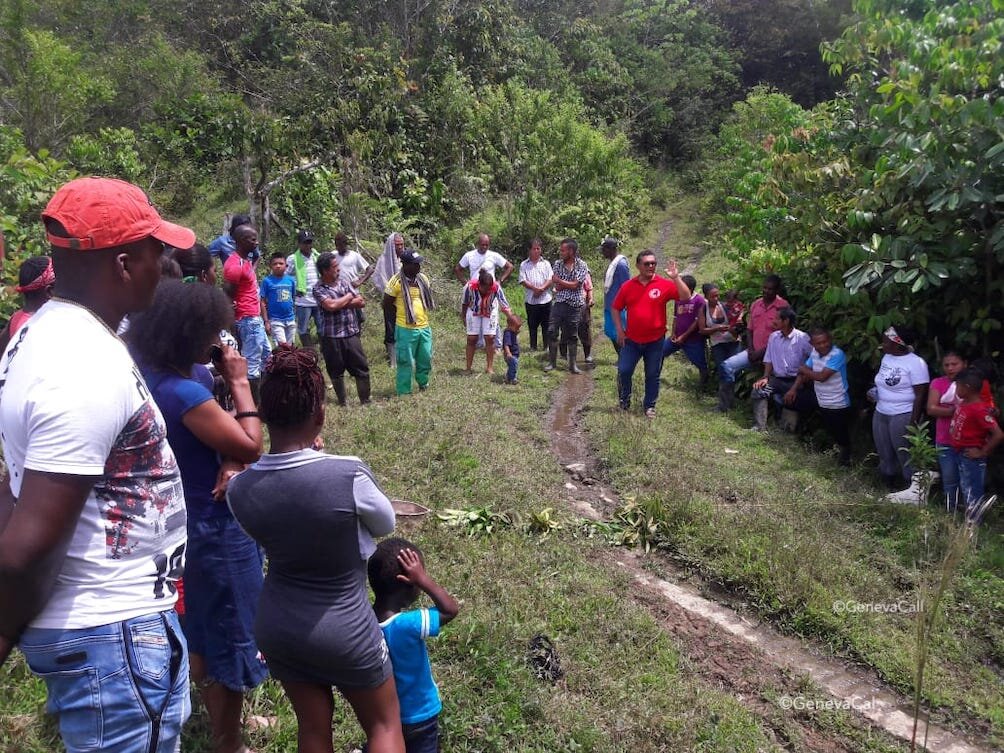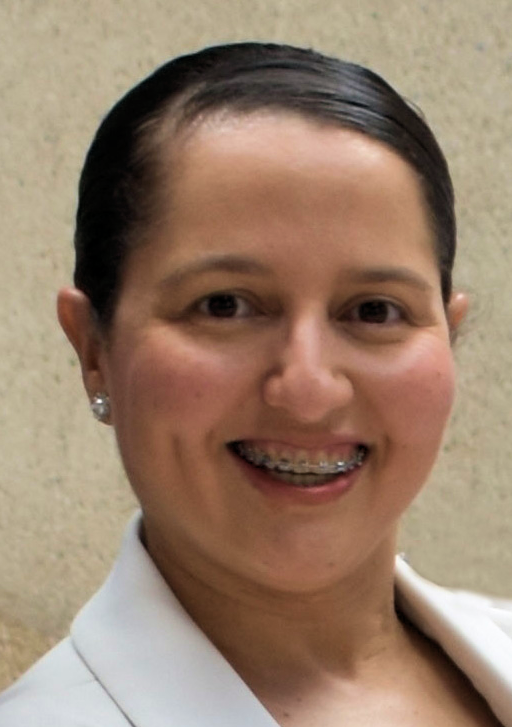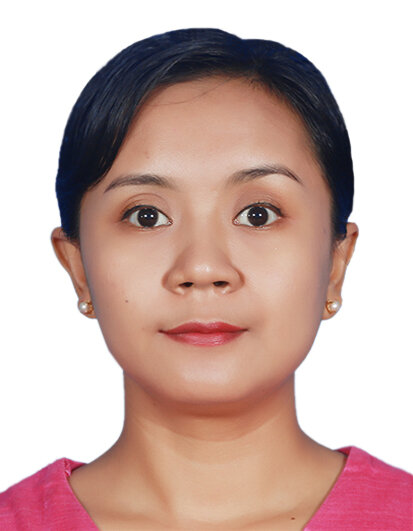
Project Team
The research team of the Generating Respect Project is distinctly interdisciplinary and bridges academia and practice.
We are scholars and practitioners with expertise in the fields of international humanitarian law, international human rights law, law and religion, political science, humanitarian assistance, psychology, social and grassroots community work and digital storytelling.
Dr Ioana Cismas
Principal investigator
The Generating Respect Project
Ioana is the Co-Director of the Centre for Applied Human Rights and Reader at York Law School, University of York. She is the Principal investigator of the Generating Respect Project.
Prior to joining the University of York, she lectured at Stirling Law School (2015-2017), was a Scholar-in-residence at Centre for Human Rights and Global Justice of the New York University School of Law (2014), and a Research fellow at the Geneva Academy of International Humanitarian Law and Human Rights (2009-2013).
Ioana consults for international, non - and governmental organizations. In 2013, she served as consultant to the UN Special Rapporteur on the promotion of truth, justice, reparation and guarantees of non-recurrence at the OHCHR in Geneva. From 2009-2012, she was legal advisor to a member of the Advisory Committee of the UN Human Rights Council.
Her publications explore the intersection between legal accountability and legitimacy of various state and non-state actors; they include Religious Actors and International Law (Oxford University Press, 2014).
Ioana holds a PhD in international law (summa cum laude) from the Graduate Institute of International and Development Studies in Geneva.
Dr Ezequiel Heffes
Co-investigator
The Generating Respect Project
Ezequiel is a Senior Policy and Legal Advisor at Geneva Call, a humanitarian NGO that promotes respect of humanitarian norms by armed groups. He is the Co-investigator of the Generating Respect Project.
Ezequiel holds a PhD from the University of Leiden, an LLM in IHL and Human Rights from the Geneva Academy, and a law degree from the University of Buenos Aires School of Law.
Prior to joining Geneva Call, he worked as a field and protection delegate and as a head of office for the ICRC in Colombia, Afghanistan and the Democratic Republic of Congo.
He has participated in different research projects and has published various articles and book chapters on different international law issues. He is the author of Detention by Non-State Armed Groups under International Law (Cambridge University Press, 2022), and is the co-editor of International Humanitarian Law and Non-State Actors. Debates, Law and Practice (T.M.C. Asser/Springer, 2020).
Dr Piergiuseppe Parisi
Associate researcher
The Generating Respect Project
Piergiuseppe is a Lecturer at the York Law School and the Centre for Applied Human Rights. He is an associate researcher on the Generating Respect Project focusing on Colombia and Mali.
Prior to that, Piergiuseppe worked as a research associate at the Centre for Applied Human Rights, where he led research on environmental and human rights defenders as part of the Human Rights Defender Hub and on ‘Shaping a Human Rights-Based Approach to COVID-19 in the City of York’. In the past, Piergiuseppe worked as a research assistant for the HERA-funded MELA (Memory Laws in European and Comparative Perspective) Project. Since November 2019, Piergiuseppe is also an associate lecturer at the York Law School.
Piergiuseppe has consulted for or collaborated with civil society organisations including Amnesty International UK and War on Want, and he interned at the International Criminal Court and REDRESS. In addition, Piergiuseppe has extensive field experience in Colombia and Israel and Palestine.
Piergiuseppe holds a PhD in International Studies from the School of International Studies at the University of Trento (Italy).
He has published several articles and book chapters in English, Spanish and Italian.
Ms Jelena Erstic
Project administrator
The Generating Respect Project
Jelena is the research administrator for the Generating Respect for Humanitarian Norms project.
She has worked on international service support contracts and has extensive experience providing administrative and financial support services for the UN, UNHCR and the US Department of State. From 1992 – 2002, she worked as a field assistant, administrative officer, personnel officer, accounting specialist and resources coordinator on large service support contracts in Bosnia, Angola, East Timor, Australia and Kosovo. She was recently employed as a research administrator supporting an Erasmus Mundus 3-year research project entitled 'Enhancing Studies and Practice of the Social Economy and Social Capital in Higher Education' aimed at informing higher education curriculum design about the 'social economy'.
Mr Chris Rush
Myanmar researcher
The Generating Respect Project
Chris, the researcher focusing on Burma/Myanmar for the Generating Respect Project, has a background in forced displacement and humanitarian assistance.
From 1992 to 2006 he worked for a number of organszations assisting refugees and internally displaced people in the United Kingdom, Thailand and Sri Lanka before working in various roles in Asia for Geneva Call for the next decade. He led Geneva Call’s work in Burma/Myanmar for six years, including its humanitarian engagement of over a dozen non-state armed groups. He is currently a consultant, and has undertaken a number of humanitarian and human rights assignments in Burma/Myanmar and other countries.
Ms Marta Furlan
Syria and Yemen researcher
The Generating Respect Project
Marta is the researcher on Yemen and Syria for the Generating Respect Project and is based at Geneva Call.
She is pursuing her PhD at the Handa Centre for the Study of Terrorism and Political Violence at the University of St Andrews, Scotland. Her doctoral dissertation studies governance by Salafi-Jihadist armed groups in contexts of civil conflict, looking in particular at Syria, Iraq, and Yemen. The aim is to understand how Salafi-Jihadist groups behave as governors, illuminate the ideological and non-ideological factors that inform their strategies as rulers, and investigate governance variation across Salafi-Jihadist and non-Salafi-Jihadist armed groups. Beyond the specific scope of her doctoral research, Marta’s expertise extends to civil conflicts, insurgencies, violent non-state actors, rebel governance, and political Islam.
Prior to joining St Andrews, Marta obtained her MA from the School of International Studies at the University of Trento, Italy, with a dissertation on Hamas’ transition from terrorism to politics.
Marta has published peer-reviewed articles, book chapters, and policy reports on various aspects of civil wars, armed groups, and rebel governance with a focus on the Middle East (Syria, Iraq, Yemen, Palestine, Israel). She has also presented her research at various international conferences and workshops, including the United Nations Development Program, the Program on Extremism at George Washington University, and the Graduate Institute in Geneva.
Dr Adelaida Ibarra Padilla
Colombia associate researcher
The Generating Respect Project
Adelaida is an associate researcher at the York Law School and Centre for Applied Human Rights currently working on the Generating Respect Project focusing on Colombia. Prior to joining York, she lectured at Nueva Granada Military University Law School (2019-2022), Universidad de Los Andes (2019-2020), Universidad del Atlántico (2010-2013), among other Colombian Universities. She was a Fulbright Scholar at Cornell Law School (2016-2017), a research fellow at the International Nuremberg Principles Academy (2016), and at the German Institute for Environmental Strategies – Ökopol (2008-2009).
She has performed as Director of Research Center, Director of Academic Programme and Deputy Dean at the Law School at the Nueva Granada Military University Law School. She also worked as public official at the Colombian Ministry of Labour (2013), and at the Superior Court of Bogota Justice and Peace Chamber (2022).
Adelaida holds a PhD in Law and a Master in International Law from the Universidad de los Andes (Colombia) and an MBA in Sustainability Management of the Leuphana University of Lüneburg (Germany). She has researched and taught in the fields of human rights law, international law, transitional and restorative justice, peacebuilding, gender, and constitutional law. She has large experience in qualitative research and fieldwork with sensitive groups such as former combatants and victims of gross human rights violations in Colombia. Her publications can be consulted here.
Mr Nicolás Braguinsky Cascini
Digital storytelling consultant
The Generating Respect Project
Nicolás is a storyteller, videographer, video editor and photographer.
He works as a freelancer for international organisations (IOM, Foraus), companies (CIAI, Floraiku) and non-governmental organisations (Civitas Maxima, Southern Voice) to enhance their strategic audio-visual communication.
Nicolás has made two documentaries. "Solidarity Crime. The borders of democracy" (2019, with Juan Pablo Aris Escarcena) tells the story of the criminalization that many European citizens are suffering because of their solidarity with migrants. "Beyond Impunity" (2020), depicts how war-affected communities engage in dialogue about impunity.
Former Project Team Members
Ms Émilie Max
Researcher
The Generating Respect Project
Émilie joined the Generating Respect Project at the end of April 2022 and is based at Geneva Call.
Prior to joining the GRP, Émilie was a researcher at the Geneva Academy of International Humanitarian Law and Human Rights. In addition to organizing the IHL Talks, her policy-oriented research focused on the intersection between international humanitarian law (IHL) and international human rights law as well as on implementation of these legal frameworks. It resulted in the publication of several policy papers. She also worked as an independent consultant for international NGOs based in the Middle-East (Israel and Palestine, Lebanon) and in Sweden.
Émilie previously worked for over four years as a Legal Officer for the Directorate of International Law of the Swiss Department of Foreign of Affairs, where she focused on IHL and international criminal justice. She was also a teaching assistant to Professor Marco Sassòli at the University of Geneva, assisting with his classes on public international law (BA level) and practice of IHL (MA level).
Émilie holds an LLM from the Geneva Academy, as well as an MA on Middle-Eastern Studies from the School of Oriental and African Studies (London, United Kingdom). She is fluent in French, English and German.
Ms Yolvi Lena Padilla Sepulveda
Colombia researcher
The Generating Respect Project
Yolvi is a psychologist with a specialisation in childhood, culture and development studies.
She has vast experience in humanitarian engagement and dialogue with different social actors on human rights and international humanitarian law (IHL), and specifically on the protection of the civilian population. Her expertise includes psychosocial management, care and support processes of victims of political and social violence; community risk management and rights restoration processes; and the design and implementation of pedagogical processes embracing human rights, IHL and peace building perspectives. Yolvi has worked on development and organizational strengthening of and with indigenous, Afro and peasant communities and women's organizations in Colombia.
Yolvi’s research focuses on the effects of armed conflict in urban and rural communities. She was awarded the Prix Henry Dunant Field 2105, and was distinguished with an award recognising human rights defenders in the department of Cauca, Colombia (2015).
Ms Hasnaa EL Jamali
Libya researcher
The Generating Respect Project
Hasnaa is the researcher on Libya for the Generating Respect Project and is based at Geneva Call.
Hasnaa is a consultant on conflict, security, peacebuilding, and gender. For the last seven years, she conducted different consultancies with various organizations working on conflict, armed groups, security and gender issues in Geneva, Tunisia, Libya and Morocco. Hasnaa has a special interest in conflict prevention and the role of women in peacebuilding and violence prevention.
In Morocco, she volunteered with different associations and civil society organizations working for development and women’s empowerment projects. Prior to this, she was a researcher with both UNDP and the Global Institute for Water Environment and Health in Geneva working on different projects in the MENA countries.
Hasnaa holds an MA in Development Studies from the Graduate Institute in Geneva and is finalizing another MA in Peace, Development, Security and International Conflict Transformation from Innsbruck University in Austria.
Ms Hawa Dakona
Mali researcher
The Generating Respect Project
Hawa joined the Generating Respect Project in February 2022 and is based at the Geneva Call Bamako Office.
Hawa worked as as project manager at Humanitarian Dialogue (CHD), where she was in charge of the planning, implementation, execution and monitoring of project activities.
She has also worked with humanitarian organizations, such as the Catholic Relief Services, International Rescue Committee, International Relief and Development as well as consultancy firms.
Hawa has been involved in humans rights education and awareness campaigns on the proliferation of small arms with Amnesty International.
She has conducted research into the factors of insecurity, violent extremism in the regions of the Sahel as well as human rights, and has studied the involvement of women in the mediation processes and the consolidation of peace agreements, the perception of trust between communities in the center of Mali and the public authorities and young people’s thoughts on factors of insecurity and radicalization.
Hawa holds a master’s degree from the University of Mali, and is presently working towards a Master in Project Management, and Quality Management.
Dr Jonathan Zaragoza Cristiani
Researcher
The Generating Respect Project
Jonathan joined the York Law School and the Centre for Applied Human Rights in January 2020 as the principal researcher on the Generating Respect Project.
In the past, Jonathan was a research associate at the ERC BORDERLANDS project hosted by the Robert Schuman Centre for Advanced Studies, European University Institute. He was responsible for carrying out research on EU migration policies in the Balkans, North Africa and the Middle East. Prior to this, he was an EU-Borders Visiting Research Fellow at the Centre for Global Studies (CFGS) at the University of Victoria, research assistant for the European 7th FP EMILIE Project financed by the European Commission, and researcher for the FRONTERAS project, funded by the Spanish Ministry of Science and Innovation.
Jonathan has published several papers and articles related to borders, refugees, and migration management in newspapers, books and international scientific indexed journals.
Mr Mohamed Assaleh
Mali researcher
The Generating Respect Project
Mohamed was a program coordinator at Geneva Call’s Mali country office, as well as a researcher for the Generating Respect Project.
He is a lawyer and educator who studied international humanitarian law at the International Institute of San Remo, Alioune Blondin Beye Peacekeeping School, and international criminal law at the International Nuremberg Principles Academy.
He capitalizes on several years of experience of work with humanitarian organisations, such as the International Committee of the Red Cross, Diakonia, the Danish Refugee Council, Terre des hommes (Lausanne). He is from northern Mali and has a good knowledge of contextual realities and actors in the Sahel.
Ms Khin Thet San
Myanmar associate researcher
The Generating Respect Project
Khin earned her MA Degree in Human Rights and Cultural Diversity from the University of Essex and a B.Sc in Social Work from the Asian Social Institute in Manila.
In the past, Khin worked as a senior government high school teacher and senior teacher trainer with Mote Oo education. She was a project officer and senior capacity-building officer for conflict management and mitigation projects with the International Rescue Committee in Karen State, as well as a project officer with the international peacebuilding organisation Saferworld focusing on strengthening community security and security sector reform in Southeast Myanmar.
Khin’s experience working for donors, non-governmental organizations and in partnership with local organizations has contributed to her deep understanding of community relations, social cohesion, and the impact of programming on conflict dynamics in Myanmar.
Ms Maria Paula Suarez Cock
Colombia associate researcher
The Generating Respect Project
Maria Paula obtained her law degree from the Sergio Arboleda University (Colombia). She has advanced studies in Human Rights from the Washington College of Law (USA), a specialisation in Human Rights and International Humanitarian Law from the National University (Colombia) and an MA in Post War Recovery Studies from the University of York (UK).
She has practiced for over nine years in the areas of policy development, research, advocacy, and context analysis and has expertise in gender aspects, right-based approaches, and the protection of vulnerable groups. She has advised governmental institutions on gender, development, human rights, children protection, peace-building and post-conflict aspects.
She has taught gender and human rights in different Colombian universities and has experience conducting field research in Colombia, Thailand, Myanmar and Kosovo.
















